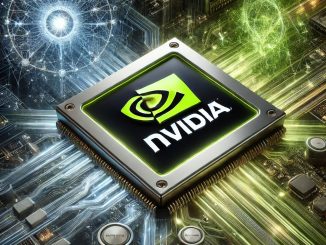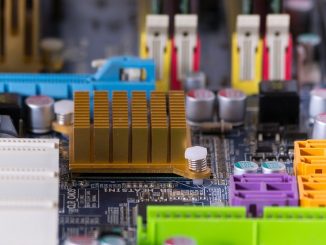
Reuters reports that China’s commitment to creating a more favorable business environment for foreign companies, including U.S. tech giant Nvidia (NVDA), was underscored in a recent meeting in Beijing. Vice Commerce Minister Wang Shouwen met with Nvidia’s Jay Puri, signaling China’s openness to international business despite looming U.S. export restrictions.
This engagement comes at a time when the Biden administration is preparing to tighten export controls, particularly on semiconductors, which would further restrict Chinese firms’ access to advanced technology. However, Wang emphasized China’s interest in fostering a positive economic dialogue with the U.S., aiming to steer bilateral trade relations back to “the right track,” according to a statement from China’s Commerce Ministry.
Nvidia, known for its pivotal role in the AI and high-performance computing sectors, has faced challenges due to U.S. policies aimed at curbing technology transfers to China. These policies are part of broader U.S. efforts to manage national security concerns while maintaining a competitive edge in technology. Despite this, China’s approach, as highlighted by Wang’s comments, suggests an intent to mitigate the impact of such restrictions by improving the conditions for foreign enterprises within its borders.
The dialogue between Wang and Puri isn’t just about smoothing over current trade tensions; it reflects a strategic move by China to ensure that its market remains attractive to global tech leaders like Nvidia. This could mean more transparent regulatory frameworks, better IP protection, and perhaps concessions on market access for foreign companies.
However, the backdrop of new U.S. restrictions complicates this narrative. Nvidia has already had to navigate around previous export controls by introducing tailored chips for the Chinese market, like the H20, L20, and L2 chips, which comply with current U.S. regulations but still allow Nvidia to maintain a presence in China.
This meeting could be seen as a proactive step by China to reassure companies like Nvidia that despite political and regulatory challenges, there is a willingness to engage and possibly negotiate terms that could benefit both parties. It’s a delicate balance for Nvidia, which must comply with U.S. laws while exploring opportunities in one of the world’s largest markets for AI and computing technology.
The outcome of these discussions could influence not only Nvidia’s strategy in China but also set a precedent for how other U.S. tech firms might approach their business dealings in the country amid ongoing geopolitical tensions. As both nations navigate this complex landscape, the focus will likely be on finding mutual benefits while adhering to national policies and security considerations.
- Bulenox: Get 45% to 91% OFF ... Use Discount Code: UNO
- Risk Our Money Not Yours | Get 50% to 90% OFF ... Use Discount Code: MMBVBKSM
Disclaimer: This page contains affiliate links. If you choose to make a purchase after clicking a link, we may receive a commission at no additional cost to you. Thank you for your support!





Leave a Reply